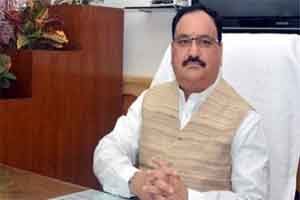- Home
- Medical news & Guidelines
- Anesthesiology
- Cardiology and CTVS
- Critical Care
- Dentistry
- Dermatology
- Diabetes and Endocrinology
- ENT
- Gastroenterology
- Medicine
- Nephrology
- Neurology
- Obstretics-Gynaecology
- Oncology
- Ophthalmology
- Orthopaedics
- Pediatrics-Neonatology
- Psychiatry
- Pulmonology
- Radiology
- Surgery
- Urology
- Laboratory Medicine
- Diet
- Nursing
- Paramedical
- Physiotherapy
- Health news
- Fact Check
- Bone Health Fact Check
- Brain Health Fact Check
- Cancer Related Fact Check
- Child Care Fact Check
- Dental and oral health fact check
- Diabetes and metabolic health fact check
- Diet and Nutrition Fact Check
- Eye and ENT Care Fact Check
- Fitness fact check
- Gut health fact check
- Heart health fact check
- Kidney health fact check
- Medical education fact check
- Men's health fact check
- Respiratory fact check
- Skin and hair care fact check
- Vaccine and Immunization fact check
- Women's health fact check
- AYUSH
- State News
- Andaman and Nicobar Islands
- Andhra Pradesh
- Arunachal Pradesh
- Assam
- Bihar
- Chandigarh
- Chattisgarh
- Dadra and Nagar Haveli
- Daman and Diu
- Delhi
- Goa
- Gujarat
- Haryana
- Himachal Pradesh
- Jammu & Kashmir
- Jharkhand
- Karnataka
- Kerala
- Ladakh
- Lakshadweep
- Madhya Pradesh
- Maharashtra
- Manipur
- Meghalaya
- Mizoram
- Nagaland
- Odisha
- Puducherry
- Punjab
- Rajasthan
- Sikkim
- Tamil Nadu
- Telangana
- Tripura
- Uttar Pradesh
- Uttrakhand
- West Bengal
- Medical Education
- Industry
Don’t panic, Albendazole is safe for deworming, says Nadda

New Delhi: Union Minister for Health and Family Welfare J.P. Nadda said Albendazole is a “safe and effective” drug for the treatment of parasitic worms, adding that it is approved by the World Health Organisation (WHO) and used globally.
Nadda’s statement came in the wake of media reports regarding some children complaining of nausea, gastric irritation and giddiness on being administered Albendazole tablets as part of the nationwide deworming initiative.
“Of a target of 27 crore children, 236 from Bihar, Chattisgarh, Haryana, Maharashtra and Rajasthan reported some mild adverse effect. The children were hospitalised, kept under observation and discharged without any major or serious complications. This is as per our standard protocol,” said the minister.
“There is no need to panic,” he said, “as such adverse incidences are noticed when the worm load is high among the children. However, care needs to be taken that the children are administered the drug in presence of teachers or guardians.”
National Deworming Day, a flagship initiative of the Ministry of Health and Family Welfare, was observed on February 10. It is the largest ever single-day public health campaign in the world targeting approximately 27 crore children aged 1-19 years throughout the country at risk of parasitic worm infection through the platform of schools and anganwadi centres.
The target population includes 8 crore children in the age group of 1-5 years and 19 crore children in the age group of 6-19 years across 561 districts of the country.
Over 900,000 education and health workers administered Albendazole tablet to crores of children in schools and anganwadis across India on Wednesday.
As many as 137 districts in 14 states have been excluded from the deworming initiative this year, as they have already covered during Mass Drug Administration in Lyphatic Filarsis programme of the Health Ministry.
Robust systems of monitoring have been instated and health workers trained to administer the deworming tablets.
Nadda’s statement came in the wake of media reports regarding some children complaining of nausea, gastric irritation and giddiness on being administered Albendazole tablets as part of the nationwide deworming initiative.
“Of a target of 27 crore children, 236 from Bihar, Chattisgarh, Haryana, Maharashtra and Rajasthan reported some mild adverse effect. The children were hospitalised, kept under observation and discharged without any major or serious complications. This is as per our standard protocol,” said the minister.
“There is no need to panic,” he said, “as such adverse incidences are noticed when the worm load is high among the children. However, care needs to be taken that the children are administered the drug in presence of teachers or guardians.”
National Deworming Day, a flagship initiative of the Ministry of Health and Family Welfare, was observed on February 10. It is the largest ever single-day public health campaign in the world targeting approximately 27 crore children aged 1-19 years throughout the country at risk of parasitic worm infection through the platform of schools and anganwadi centres.
The target population includes 8 crore children in the age group of 1-5 years and 19 crore children in the age group of 6-19 years across 561 districts of the country.
Over 900,000 education and health workers administered Albendazole tablet to crores of children in schools and anganwadis across India on Wednesday.
As many as 137 districts in 14 states have been excluded from the deworming initiative this year, as they have already covered during Mass Drug Administration in Lyphatic Filarsis programme of the Health Ministry.
Robust systems of monitoring have been instated and health workers trained to administer the deworming tablets.
Next Story


